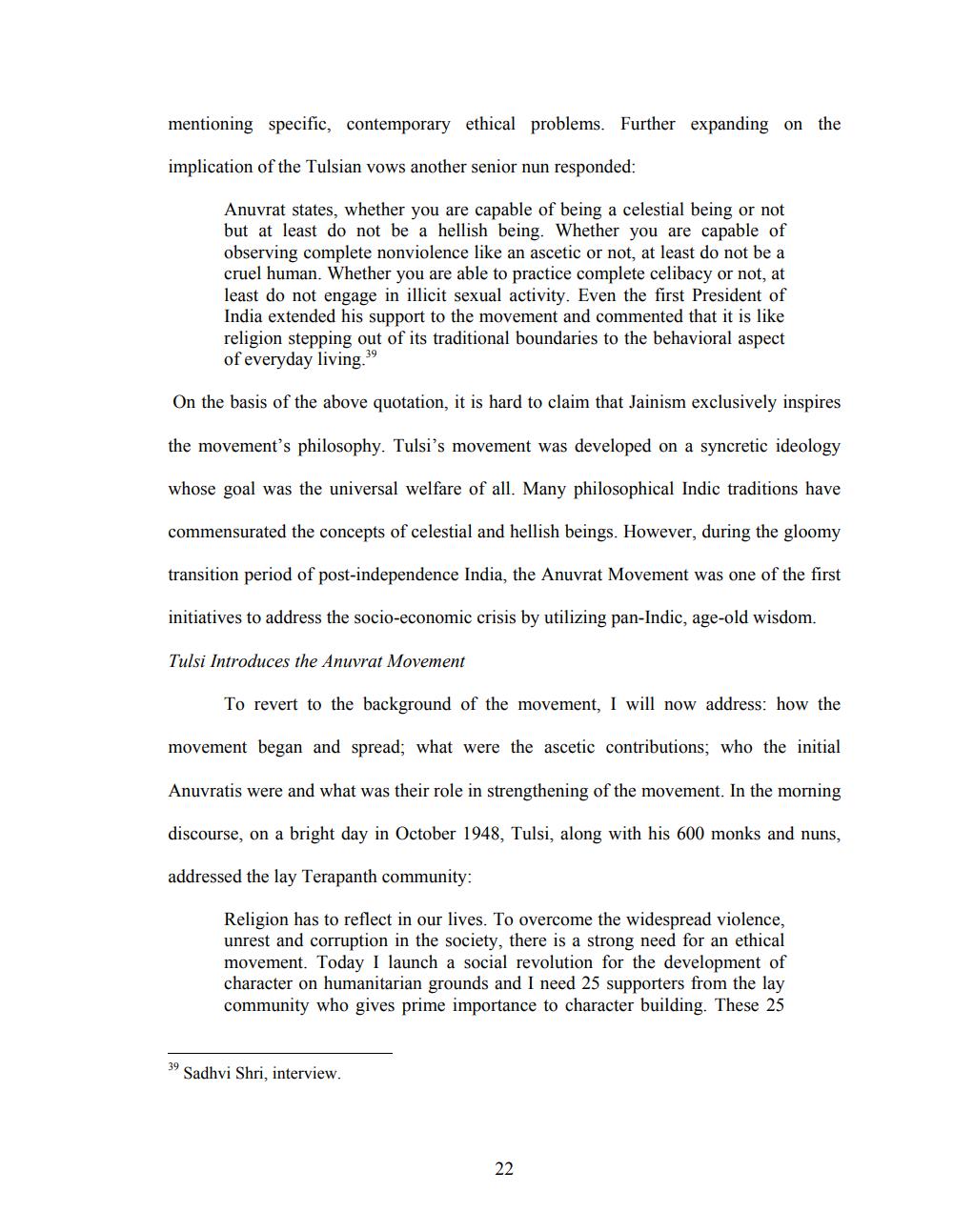________________
mentioning specific, contemporary ethical problems. Further expanding on the
implication of the Tulsian vows another senior nun responded:
Anuvrat states, whether you are capable of being a celestial being or not but at least do not be a hellish being. Whether you are capable of observing complete nonviolence like an ascetic or not, at least do not be a cruel human. Whether you are able to practice complete celibacy or not, at least do not engage in illicit sexual activity. Even the first President of India extended his support to the movement and commented that it is like religion stepping out of its traditional boundaries to the behavioral aspect of everyday living.
On the basis of the above quotation, it is hard to claim that Jainism exclusively inspires
the movement's philosophy. Tulsi's movement was developed on a syncretic ideology
whose goal was the universal welfare of all. Many philosophical Indic traditions have
commensurated the concepts of celestial and hellish beings. However, during the gloomy
transition period of post-independence India, the Anuvrat Movement was one of the first
initiatives to address the socio-economic crisis by utilizing pan-Indic, age-old wisdom.
Tulsi Introduces the Anuvrat Movement
To revert to the background of the movement, I will now address: how the
movement began and spread; what were the ascetic contributions; who the initial
Anuvratis were and what was their role in strengthening of the movement. In the morning
discourse, on a bright day in October 1948, Tulsi, along with his 600 monks and nuns,
addressed the lay Terapanth community:
Religion has to reflect in our lives. To overcome the widespread violence, unrest and corruption in the society, there is a strong need for an ethical movement. Today I launch a social revolution for the development of character on humanitarian grounds and I need 25 supporters from the lay community who gives prime importance to character building. These 25
39 Sadhvi Shri, interview.




